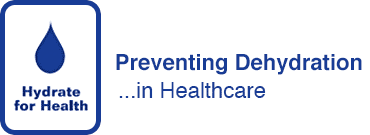Dehydration & Ageing
Dehydration & Ageing – Caroline Bartle (Dementia trainer) & Helen Behrens (Registered nurse) talk about ‘Why water is needed, the potential impact of dehydration, how older people have difficulty rehydrating & how we can help’
Water is needed to:
Eliminate toxins
Aid digestion
Lubricate joints
Regulate temperature for respiration
Transport nutrients around the body
For energy conversion & vitally is needed to help our brains work properly.
Potential impact of dehydration:
Dehydration reduces padding over bony points and may lead to bed sores
Inadequate fluid intake is a common cause of constipation
Older people’s blood pressure may drop on standing, which may cause them to fall
Feeling tired, & if prolonged can impact on other cognitive functions in the brain such as memory & perception.
An older person may have difficulty rehydrating because:
Cognitive difficulties or physical abilities, may forget or lack of skills or ability to get a drink
Have higher percentage of body fat which contains less water than lean tissue
People who experience incontinence may try to minimise their fluid intake
Sense thirst more slowly & less intensely than younger people
Medications, diuretics & laxatives may compound the problem
Certain disorders, such as diabetes may increase excretion of urine.
We need to:
Educate & inform people of the risks. Identify when someone is at risk.
Observe for signs of dehydration: Dry mouth & eyes, dark urine.
Prompt people more to drink & offer them foods with higher fluid content.
Offer people fluids of choice & sit with people while they drink. Accommodate of sensory loss
Consider the environment & support people to access the toilet.
